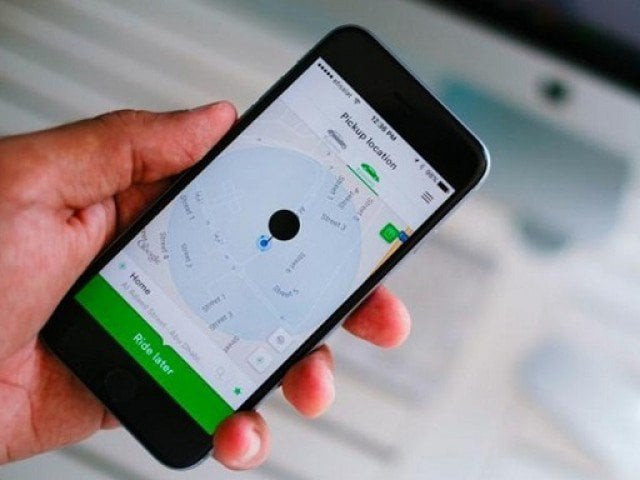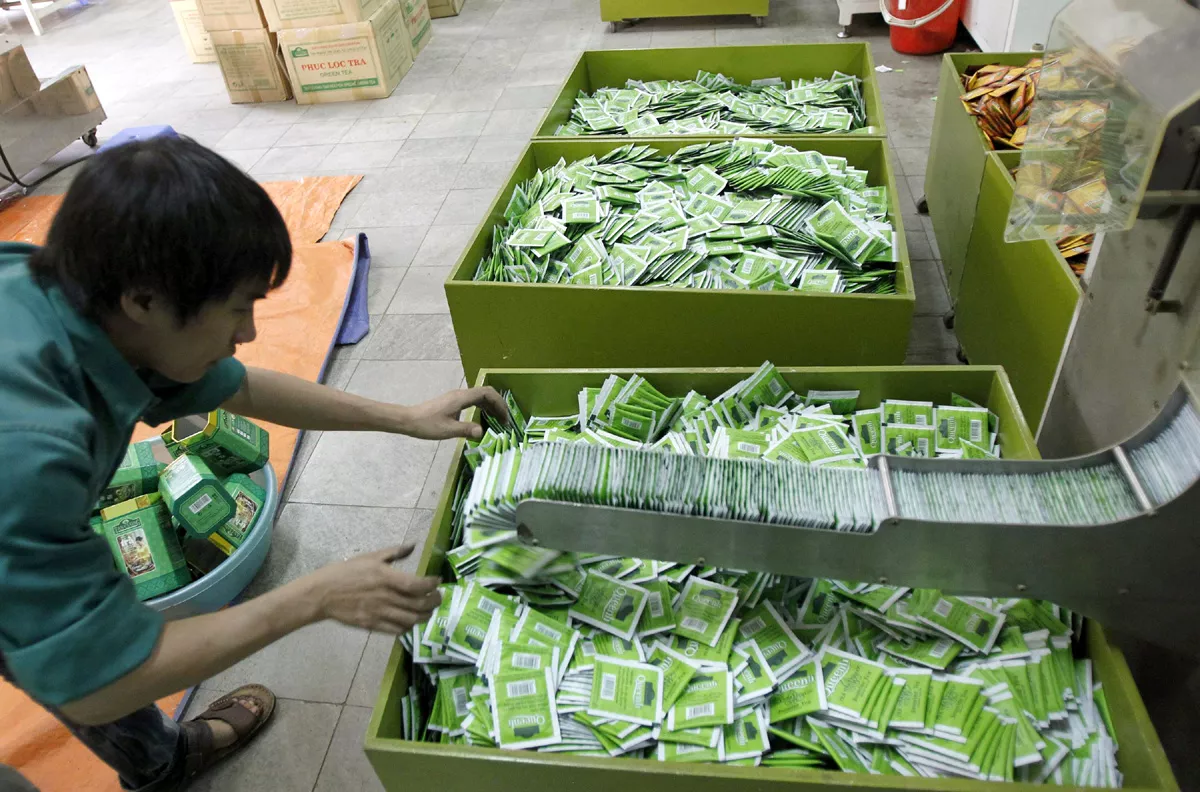A ride from Karachi to an over billion-dollar valuation
Pakistani co-founder of Careem, Mudassir Sheikha, shares plan, potential IPO and future for ride-hailing app

Sheikha, declining to disclose Pakistan’s precise standing, did say that Saudi Arabia is Careem’s biggest market in terms of revenue.
PHOTO:AFP
Careem, one of the ride-hailing apps that have transformed – if not revolutionised – the transport landscape in Pakistan, was not launched as a service in the country until almost four years after its concept was first tested in the UAE.
Interestingly, however, it made sense that Careem – co-founded by a Pakistani – chose the country as its third market. Pakistan was late, not unusual for the $313-billion economy, in adopting 3G and 4G technology. Neighbour Afghanistan tasted the technology before Pakistan did.
While that may have been one reason for the delay, there were several ‘pull’ factors that got Mudassir Sheikha, and other co-founder, Magnus Olsson, to think about Pakistan as a potential market.
Lack of a respectful public transport system, growth in smartphone penetration with the arrival of 3G/4G services, and a young population increasingly moving towards ‘on-demand services’ such as Netflix and Airbnb meant there was more than enough room for Careem.
Launched in 2012 as a web-based interface developed by engineers in Sindh’s provincial capital, Careem was an online booking service that handled corporate orders. Vehicles were dispatched manually not unlike the way Metro Radio Cab handles its orders.
But a Master’s degree in computer science from Stanford University was not going to let Sheikha stop just here. His plan, together with his Swedish friend Olsson – both working as management consultants at McKinsey & Company – was to go for something bigger.
“It was always in the business plan to launch the consumer service because we had done the sizing of this opportunity,” Sheikha told The Express Tribune in an exclusive interview. “What prompted it to happen then (in 2012) was that competition had begun to show an interest in coming to the region so we had to accelerate our plan to launch the app.
“It was developed in Karachi, and the first version of the app was very basic, but it was reliable. As a result of our focus on the corporate segment, which is very demanding, we were able to build on our reliability.”
Sheikha and Olsson started with an initial investment of $100,000 – equally shared between the two partners. It raised $1.7 million in its seed round of funding when STC Ventures – Saudi Telecom’s venture capital arm – bought a stake in 2013, according to crunchbase website.
Since then, it has raised another $570 million across four rounds of series funding, diluting Sheikha and Olsson’s share each time, but racking up strategic investors like Saudi Telecom, Kingdom Holding Company, Abraaj Group and Daimler, the owner of Mercedes-Benz, along the way.
In its latest round of funding, Careem raised an undisclosed amount through Chinese transportation giant Didi Chuxing, according to crunchbase data.
The rounds may have reduced Sheikha’s ownership in Careem, but he remains unperturbed even as he admits that a minority share in a large pie is worth much more than a 50% stake in a smaller company.
“I know what you are trying to get to,” responded Sheikha when asked what his shareholding in Careem is now. “If you look at any start-up that is growing rapidly and needs money … the founders end up becoming a minority and that’s the case here as well.
“I think the thing to look at is that we might have a smaller share but it’s a smaller share in a large pie.”
Not yet profitable but IPO a ‘natural milestone’
Despite the over billion-dollar valuation and presence of strategic investors, Sheikha says profitability is not the focus right now. “Careem is not profitable and the plan is not to be profitable right now. We are still in the aggressive expansion phase.
“There are projections that we share with investors, and I cannot disclose them right now but we are on the path to profitability, meaning that some early markets are starting to become profitable.”
The company, which operates in 14 countries and 100-plus cities, has served over 20 million customers, according to data shared by the company earlier this year. Pakistan has the service available in 14 cities, and is the second largest market for Careem in terms of the number of trips, according to a source who shared details on the condition of anonymity. In terms of revenue, it is the third largest, the source added.
Sheikha, declining to disclose Pakistan’s precise standing, did say that Saudi Arabia is Careem’s biggest market in terms of revenue.
Yet, when it comes to going public, Careem is taking it slow, unlike its expansion plan and diversification model that has seen it add services like three-wheelers, motorcycles and multiple segments of the vehicles’ category. But an IPO is one destination Careem intends to hit on its business journey.
“It is so early in this journey that a lot of focus needs to be spent on just driving growth. We are creating 70,000 to 80,000 new jobs every month and despite that scale, we are less than 1% of the available opportunity in the region. Opportunity is massive, unlike in the US.
“In Pakistan, we didn’t build public transport infrastructure so the opportunity for us is much bigger than the ones that exist for similar companies in other markets. There are many challenges in this journey including figuring out how to get people who own a car to drop it and start using the app as a service.
“Having said that, if you want to build an independently successful business, an IPO is a natural milestone. Companies go through that and at some point we will also go through that milestone but at the moment the focus is purely on growth.”
The options to list Careem on a stock exchange would range from Dubai to London and New York.
Future growth and acquiring customers
While co-founder Olsson’s motivation to start a business was a brain surgery – before which he was told he may not survive – Sheikha’s drive was slightly “less dramatic”.
An assignment – compile a list of big companies in Pakistan – made him realise a population of over 200 million people had only produced one publicly traded company, outside of the oil and gas sector, that was worth a billion dollars.
“When Magnus (Olsson) and I met in 2012, with him going through a life-threatening scenario and me just having had this realisation, we decided to build something meaningful and leave a legacy.
“We started looking for a problem and in this case it was transportation.”
While there is a lot to be desired in terms of delivery of service in Pakistan, the Middle East market remains a better organised structure in terms of transportation. However, Sheikha says the most efficient way to build public transport infrastructure now is through latest technology.
“(Subways and metros) were most likely the most efficient way to move people at scale (years ago). There were no digital maps, internet or technology. Today, I would argue, and we can prove it with numbers, the most efficient way to build public transport infrastructure is through technology.
“Think about it; building a subway line and calculate the per-capita cost of moving one person. The same for a ride-sharing platform is one third.”
By Sheikha’s argument, which he voices confidently, Pakistan is skipping a step – using ride-hailing apps and skipping public transport infrastructure.
“We don’t have to do things that were done a hundred years ago. I would argue that the transportation system in Karachi today is better than the one in many European cities.
“If the governments are smart they are not going to build it. Many governments in the region don’t even have billions of dollars to build public transport because you need a lot of fiscal space to do it.
“This is like a transportation system being built through crowd funding.”
Sheikha’s point is well-taken. With a GDP per capita of $1,600 and a huge portion of the population below the poverty line, ride-hailing apps have given a number of job-seekers from the labour class a way to earn money. Drivers, referred eccentrically as captains by Careem, have found way to earn almost twice as GDP per capita by working on company-defined deliverables.
Hacked data: A for anonymous, B for breach, C for Careem
It helps Careem that Pakistan’s auto sales have increased in the last few years – due to low levels of inflation and cheaper consumer finance – but it’s also a smart model since it relies on crowd funding. People drive either their own vehicles or someone else’s, and become a part of Careem’s fleet, which it does not own.
Cars are now suddenly a return-bearing asset with utility rather than a depreciating, cost-incurring good.
The model conveys a lot about any economy.
Sheikha says the plan is to keep moving forward and add services.
“Buses will happen along with other things,” says Sheikha, adding quickly that this may take some time. “We have just launched the bikes’ service. We are still getting it to scale. When that happens, this will be the next step.”
Blemish in journey
Sheikha has no plans to stop or even slow down. The Ivy League graduate may have had a good run, but a blemish did occur on his Careem journey a few months ago.
Careem data leak: LHC summons ride-hailing company, others
A cyber-attack in January meant three out of every four users that have the app installed on their phones were affected. It was a big deal.
The company admitted the cyber-attack almost three and a half months after the incident, drawing flak from consumers whose information was now accessible to online criminals that gained access to Careem’s computer systems.
“Digital crime is the unfortunate reality of the world that we live in. It happened to many others, including some of the biggest technology companies but I believe we have come out much stronger.
Careem admits to mass data leak
“We have significantly fortified our firewalls and infrastructure to prevent something like this happening again. We have put a lot of monitoring in place that will detect this type of activity much faster and third, now we have a large cyber security team.
“We are much better secured than we have ever been.”
The writer is business editor at The Express Tribune and winner of the Citi Journalistic Excellence Award 2018
Published in The Express Tribune, September 3rd, 2018.
Like Business on Facebook, follow @TribuneBiz on Twitter to stay informed and join in the conversation.



















COMMENTS
Comments are moderated and generally will be posted if they are on-topic and not abusive.
For more information, please see our Comments FAQ